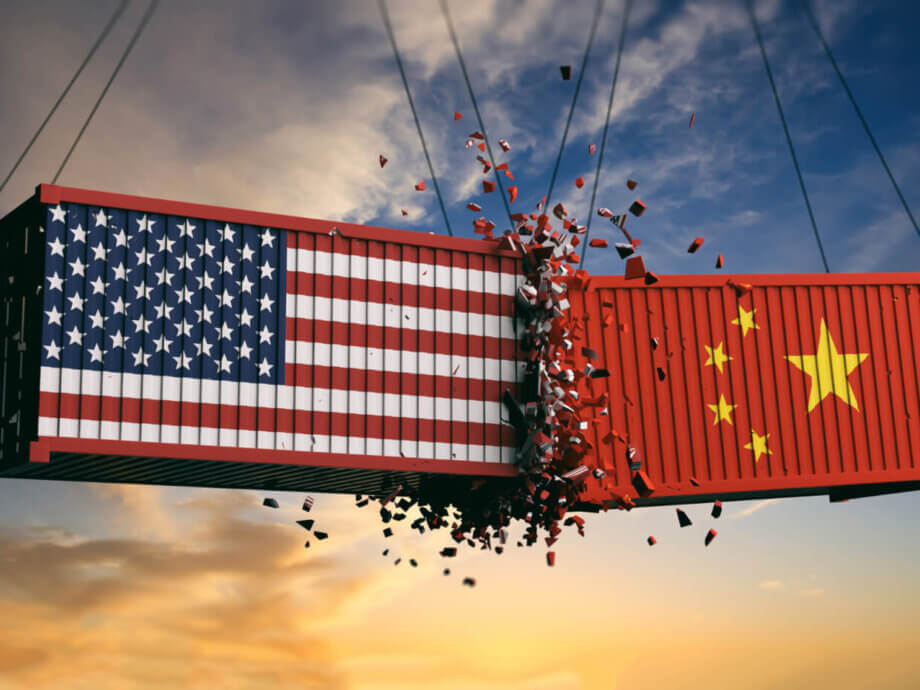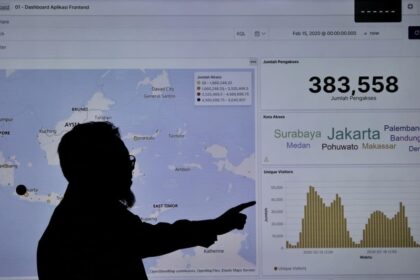China’s Firm Opposition to US-Led Trade Deals: A New Phase in the Global Tariff War
China has issued a stark warning to countries considering trade agreements with the United States that could harm Chinese interests, vowing to take “resolute and reciprocal” countermeasures if its economic position is compromised. This development marks a significant escalation in the ongoing trade conflict between the world’s two largest economies, as the US administration intensifies its use of tariffs and seeks to leverage its economic power in negotiations with global partners.
- China’s Firm Opposition to US-Led Trade Deals: A New Phase in the Global Tariff War
- What Triggered China’s Warning?
- How Are US Tariffs Reshaping Global Trade?
- China’s Diplomatic and Economic Countermeasures
- Global Reactions: Allies Caught in the Crossfire
- Economic Impact: Markets, Supply Chains, and the Global Outlook
- Broader Implications: The Future of the Multilateral Trading System
- In Summary
The Chinese Ministry of Commerce’s statement, echoed by top officials and state media, comes amid reports that the US is pressuring other nations to limit their trade with China in exchange for relief from steep US tariffs. The warning signals Beijing’s determination to defend its economic interests and uphold the multilateral trading system, even as the US pursues a more unilateral, transactional approach to global trade.
What Triggered China’s Warning?
The immediate catalyst for China’s warning was a series of moves by the US administration to impose sweeping tariffs on Chinese goods—reaching up to 145%—while offering other countries the possibility of tariff exemptions if they agree to restrict their own trade with China. According to multiple reports, the US has initiated talks with dozens of trading partners, including Japan, South Korea, and members of the European Union, with the aim of isolating China economically.
President Trump’s administration has made clear that countries seeking relief from US tariffs may be required to curb their economic ties with China or face secondary tariffs and other penalties. This approach, described by Chinese officials as “unilateral bullying,” has drawn sharp criticism from Beijing and raised concerns among America’s allies and trading partners.
China’s Ministry of Commerce responded unequivocally, stating:
“China firmly opposes any party reaching a deal at the expense of China’s interests. If this happens, China will never accept it and will resolutely take countermeasures.”
The ministry further warned that appeasement and compromise would not bring peace or respect, likening the act of sacrificing another country’s interests for short-term gain to “bargaining with a tiger for its skin.”
How Are US Tariffs Reshaping Global Trade?
The US has dramatically increased tariffs on Chinese imports, with rates now reaching 145% on many goods. In response, China has imposed retaliatory tariffs of 125% on US products. While the US paused its new tariffs on most other countries for a 90-day period, the pressure on China remains intense, and the administration has signaled that countries failing to reach agreements may face unilateral tariff hikes after the deadline.
These measures have sent shockwaves through global markets, disrupted supply chains, and forced countries to reconsider their trade strategies. The Trump administration argues that the tariffs are necessary to protect American industries, encourage domestic manufacturing, and address longstanding trade imbalances. However, critics warn that such policies risk triggering a global recession and undermining the rules-based international trading system.
According to the New York Times, the US has not officially confirmed that it is pressuring countries to limit trade with China in return for tariff relief, but President Trump has suggested that such a strategy is under consideration. The administration claims that more than 70 countries have expressed interest in negotiating new trade deals since the tariffs were announced.
For many countries, the stakes are high. Japan, for example, derives about 20% of its profitability from the US market and 15% from China, making it reluctant to choose sides. Southeast Asian nations, heavily reliant on both Chinese investment and US consumption, face similar dilemmas. As Bo Zhengyuan, a partner at policy consultancy Plenum, notes:
“If countries have high reliance on China in terms of investment, industrial infrastructure, technology know-how and consumption, I don’t think they’ll be buying into US demands. Many Southeast Asian countries belong to this category.”
China’s Diplomatic and Economic Countermeasures
China’s response to the US strategy has been multifaceted. On the diplomatic front, President Xi Jinping has embarked on a series of visits to Southeast Asian countries, including Vietnam, Malaysia, and Cambodia, to strengthen regional ties and promote economic integration. Xi has called on trade partners to resist “unilateral bullying” and to uphold the principles of fairness and justice in international trade.
During a meeting with Azerbaijan’s President, Xi warned that trade wars “undermine the legitimate rights and interests of all countries, hurt the multilateral trading system and impact the world economic order.” He emphasized China’s willingness to work with other nations to defend international law and the United Nations-centered global system.
Economically, China has imposed its own tariffs on US goods and introduced export restrictions on critical minerals, particularly targeting the US. These measures are designed to protect Chinese industries and signal Beijing’s readiness to escalate the conflict if necessary. China has also sought to diversify its export markets and deepen ties with the European Union and the Association of Southeast Asian Nations (ASEAN), both of which are major trading partners.
China’s Ministry of Commerce has made it clear that any country seeking to benefit from US tariff exemptions at China’s expense will face consequences. As Zhou Mi, a senior researcher at the Chinese Academy of International Trade and Economic Cooperation, explained to the Global Times:
“When these countries do that, they will face opposition from China, which could adversely affect their development interests, future market opportunities and credibility.”
Global Reactions: Allies Caught in the Crossfire
The US strategy of leveraging tariffs to pressure allies and trading partners has created significant unease in capitals around the world. The European Union, Japan, South Korea, and other major economies have found themselves caught between the competing demands of Washington and Beijing.
European Commission President Ursula von der Leyen has urged the US to work with its allies to address trade imbalances with China, rather than imposing tariffs on friendly nations. The EU has proposed eliminating tariffs on industrial goods on both sides, but US negotiators have pressed for broader concessions, including changes to value-added tax rules, digital regulation, and food safety standards.
Japan and South Korea have sent high-level delegations to Washington to negotiate tariff relief, while also seeking to maintain stable economic relations with China. Vietnam, a key beneficiary of supply chain shifts away from China, has pledged to crack down on transshipment practices that allow Chinese goods to enter the US market under false pretenses.
Despite these efforts, many countries are wary of antagonizing either superpower. As Zhiwu Chen, a professor of finance at the University of Hong Kong, told the New York Times:
“They don’t really have a lot of leeway to take China’s side and offend the US.”
Some countries, such as the UK, have publicly dismissed the idea of economically disengaging from China, with Chancellor Rachel Reeves stating that it would be “very foolish not to engage” with the world’s second-largest economy.
Economic Impact: Markets, Supply Chains, and the Global Outlook
The intensifying trade war has had profound effects on global markets and supply chains. The imposition of high tariffs has increased costs for businesses and consumers, disrupted established trade routes, and forced companies to reconsider their manufacturing and sourcing strategies.
Many multinational firms have adopted “China+1” strategies, relocating some production to countries like Vietnam, Mexico, and India to mitigate the risks of US-China tensions. However, with the US now targeting these alternative markets with new tariffs, the cost advantage of moving production out of China is diminishing.
According to Jens Eskelund, president of the European Union Chamber of Commerce in China, companies have already made significant adjustments to their supply chains, but further restructuring will not be possible overnight. The uncertainty created by the trade war has also contributed to market volatility, with haven assets like gold and the euro surging as investors seek safety.
The International Monetary Fund has revised its global growth forecast downward, citing the risk of a prolonged trade conflict. China, for its part, has pledged to maintain its economic growth target and implement additional fiscal and monetary stimulus to cushion the impact of the tariffs.
Broader Implications: The Future of the Multilateral Trading System
At the heart of the dispute is a fundamental clash over the future of the global trading system. The US has increasingly embraced a unilateral, protectionist approach, using tariffs as a tool to extract concessions from both rivals and allies. China, while defending its own interests, has positioned itself as a champion of multilateralism and the rules-based order.
Chinese officials have repeatedly warned that a return to the “law of the jungle,” where the strong prey on the weak, would make all countries victims. They have called on the international community to resist US trade coercion and to uphold the principles of fairness, justice, and mutual benefit.
As the July 9 deadline for the US “reciprocal tariffs” approaches, the world is watching to see whether a new round of trade deals will be struck, and whether China’s warnings will deter countries from aligning too closely with Washington’s demands. The outcome will have far-reaching consequences for the global economy, the future of international trade, and the balance of power between the US and China.
In Summary
- China has warned it will retaliate against any country that enters into trade agreements with the US at the expense of Chinese interests.
- The US has imposed steep tariffs on Chinese goods and is pressuring other countries to limit trade with China in exchange for tariff relief.
- China’s Ministry of Commerce has condemned the US approach as “unilateral bullying” and vowed to defend its legitimate rights and interests.
- Many countries, including Japan, South Korea, and EU members, are caught between the competing demands of the US and China.
- The trade war has disrupted global supply chains, increased costs, and contributed to market volatility and economic uncertainty.
- China is strengthening ties with other trading partners and calling for the defense of the multilateral trading system.
- The outcome of ongoing negotiations and the July 9 tariff deadline will shape the future of global trade and US-China relations.












